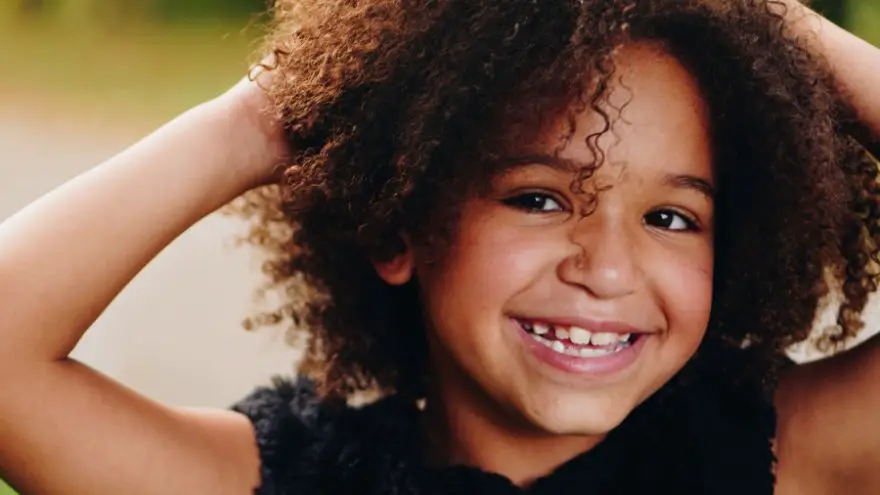5 Ways to Encourage Self-Expression in Children

Self-expression can be a difficult thing to control even as an adult. When our job demands a certain attire or way of behaving, we forget that our appearance and the way we carry ourselves are the main ways of expressing ourselves and building first impressions upon meeting new people. With our own ways of self-expression being bleached out by work or other environments, though, we as adults tend to forget how to actually resume honing our arts of expressing ourselves and we get used to a much more comfortable alternative whenever the workplace requires it.
With our sense of self-expression gone, or almost forgotten in favor of our comfort, it’s only natural that we would run into some minor difficulties when it comes to passing our knowledge down to the newer generations, in an attempt to encourage them in their own quest of self-expression while they’re young.
It’s true that, long ago, self-expression was something a child learned about ever since they were really small, having to interact with other, perhaps like-minded children or play dates or any other sort of entourage they later found themselves taking part in. Such collective activities with others, or even alongside someone who has their self-expression skills better developed, all work properly in order to get the child to put in an effort to get along with the other party and, as such, improve their self confidence regarding several words, their meanings, or other children’s behavior that could tell them so much about how to get along with them. In the same manner, your child will also see different kids playing different things and be able to relate to them, and what’s more, they will certainly pick up a couple or more of new preferences, for or against whatever had been displayed by the other kids. When they can orientate themselves like that, judging by what they like and what they don’t like, then they may acquire a much more reasonable and logical outlook on matters rather than just starting to demand the newest thing in sight just because of peer pressure, no matter how small or insignificant it might look.
![]() However, with the aspect of collective learning and all the social interaction discussed, there’s only one aspect of encouraging self-expression in children left: how do you as a parent help your child be better at self-expression without any outside factors?
However, with the aspect of collective learning and all the social interaction discussed, there’s only one aspect of encouraging self-expression in children left: how do you as a parent help your child be better at self-expression without any outside factors?
Perhaps you do not wish to wait until your child is old enough to start building friendships with such an influence over them, or perhaps you feel like the sooner you start encouraging them, the better it will be for them later on in the long run in their development.
A well-known fact by parents all over the world is that the better your relationship with your child is, the more you seem to be able to communicate openly about everything and nothing. It’s all part of a child’s self-expression abilities, and how they should be nurtured by a parent even since they’re little.
If I were to give my opinion on what self-expression means in a child too, then it would definitely focus more on their communication skills directed at their family, close ones and the world, rather than their fashion sense (which is still a form of expressing themselves) or their mannerisms or anything else. Verbal communication is the most important form of interaction, not only within family members, but people altogether, and the better someone can be at communicating and understanding the others around them, the better they will fare in life and social situations overall.
But how can you actually help nurture and improve your child’s self-expression? Here are five ways through which you could help improve your child’s self-expression skills!
Understand
1) Everything starts with being understanding. Don’t reject any ideas they might come up with, as it would be perceived as building a barrier between you and your child, not allowing them to support their argument nor discover what would have followed. In short, try to remain reachable, understanding, and hear out whatever new ideas they might have, before making a decision.
Support
2) Next to being understanding comes being supportive of their newfound ways of expressing themselves. Did your child start showing an interest in drawing or painting? That can definitely be a form of self-expression! Expressing their feelings through art is not unheard of. Don’t try to shoot their new hobby down, even if maybe you don’t consider their drawings to be that good, or from whatever other reason that might do more bad than good. Encourage your child further to pursue their interest in whichever art it is that they feel like they can most relate to and as such, express themselves through.
Be flexible
3) Don’t be rigid when it comes to different matters that they are trying to solve with your help. The more options and choices available a child has whenever faced with a decision awaiting his final input, the more they will be needed to compare the options they will be, and through comparison comes the freedom of choosing. Through that, the kids start to figure out what’s on their taste and what isn’t and can express themselves much better in the future.
Appreciate
4) Show that you value them expressing themselves, whenever they reach out to you with a story from what happened today in class, or when they come out in a different, make sure to not accidentally ignore them or lose focus. They come to you because they value your input, and the more you value and show interest in what they have to say and what feelings their life experiences cause in them, then the more they will be inclined to share with you as time passes.
Communicate
5) Communication, communication, and more communication. Whenever your child seems down or under the weather, reach out to them. Discuss their feelings, their problems, and let them know that they have a friend in you, a shoulder to cry on when needed, and a really great teacher in life.







